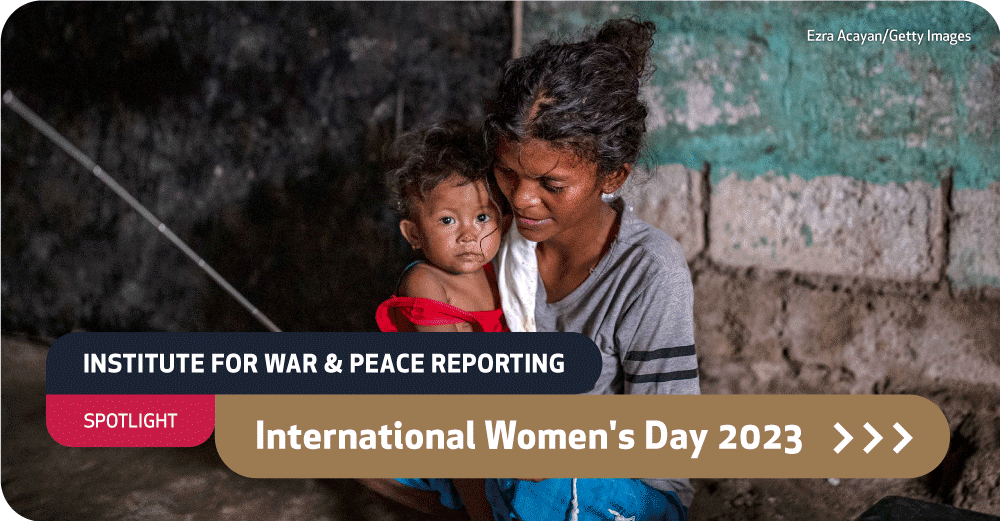Nagorny Karabakh’s Female Deminers
The region has the highest per capita rate in the world of accidents due to unexploded ordnance.
Nagorny Karabakh’s Female Deminers
The region has the highest per capita rate in the world of accidents due to unexploded ordnance.
On a cold morning as the wind whistles down from snow-capped mountains, deminers Taguhi Grigoryan and Shamiram Grigoryan adjust their body armour and visors. They are about to embark on Battle Area Clearance with their male colleagues in the suburbs of Stepanakert, the main city of Nagorny Karabakh.
The two are among 16 women who work for the HALO Trust, a British demining charity operating in Karabakh since 2000.
Since the end of the 1992-1994 war, Karabakh has the highest per capita rate in the world of accidents due to landmines and unexploded ordnance. A quarter of the casualties have been children.
In 20 years, the HALO Trust has cleared around 47 sq km of minefields, finding and destroying almost 12,000 landmines. However, the 44-day war of 2020 saw the area bombarded with cluster munitions in residential areas including the capital Stepanakert and neighbouring communities. Some of them did not explode and jeopardized the population.
Taguhi is a 30-year-old mother of a nine-month-old daughter who has been working at the HALO Trust for five years. She lives with her daughter and mother in the village of Khnatsakh and said that she had to overcome stereotypes to take on a job not usually associated with women.
‘’We live in fear, not for ourselves but for our children."
“[People said], ‘How can you do that job, if something suddenly happens to you who will take care of your daughter,’” she said.
Although the work has been hard, Taguhi said that she was proud to be doing something with such an impact on public safety.
Her colleague Shamiram agreed. Having previously worked as a cleaner and then a carpet weaver, the mother-of-five even convinced her husband Artashes to join the demining efforts.
‘’It is also important that our work is of humanitarian nature, we do it for the safety of our children,’’ she said. She too acknowledged that the job was challenging.
Recalling the first time she encountered a cluster bomb, Shamiram said, ‘’The feeling of fear comes with every signal, the first thing that comes to your mind at that moment are your children, so that your children are not left without parents.”
In the Badara community of Askeran region, 25 kilometres from Stepanakert, Anush Avanesyan works alongside her male colleagues clearing unexploded ordnance.
The village was heavily bombarded during the most recent conflict, and much of its territory remains contaminated by unexploded ammunition.
Anush, 44, displaced from Parukh village in the Askeran region, was widowed 20 years ago and left to raise four children alone. She now lives in a rented house in Stepanakert with her children and six grandchildren.
’’My heart shattered when I remembered my house, which I left.I even miss the simple grass growing in my yard, it's an indescribable feeling,’’ she recalled. ’’I'm not in my house, but I'm in my land, I'm serving my country, as well as my family. We will always stay here.”
Previously a cook, Anush decided that mine clearance offered more stability. At first her sons were opposed to their mother working in an all-male environment, but she paid no attention.
Now, Anush explained during a tea break, ’’We are like a family, they are like my brothers or sons.”
“Many people say it is not a woman's job, but women are everywhere and this is the way it should be, and it is the job in which women like men can do the most difficult tasks,” she said.
As for the job itself, she continued, “I have absolutely no fear, the more difficult the task, the more attractive it is to me.”
The ongoing blockade of Karabakh presents the mine clearers with a fresh challenge.
Since December 12, a group of Azerbaijanis who describe themselves as eco-activists, have blocked the only road connecting Karabakh to Armenia and the outside world. As a result, people have no access to essential goods and services, including medication, food, fuel and hygiene products.
This has in turn changed the working pattern at the HALO Trust, with the work day shortened so that the deminers have time to take care of their families. They now joke that instead of searching for mines, they search for potatoes.
Taguhi said that with a baby to look after, the blockade was proving particularly stressful.
"While you have to be super focused on a clearance, I can`t get away from the thoughts of finding my baby's food, that will run out in two days," she said.
Her own father had died during the first Karabakh war when she was just an infant, Taguhi continued, explaining why she would not leave Karabakh.
‘’We live in fear, not for ourselves but for our children. If there is a war, we will fight and protect them,” she said, adding, “The weak run away, but I am not weak. Let us live in the land liberated by our parents. I can't imagine my future elsewhere, I'm drawn to this land soaked in my father's blood, we will stay here.”

